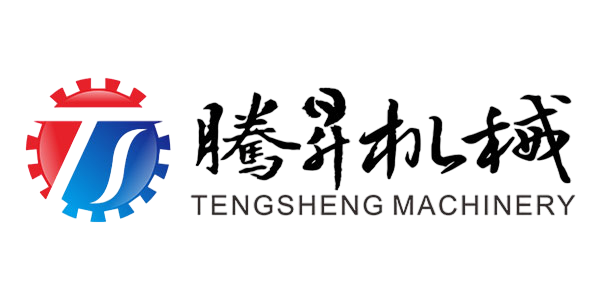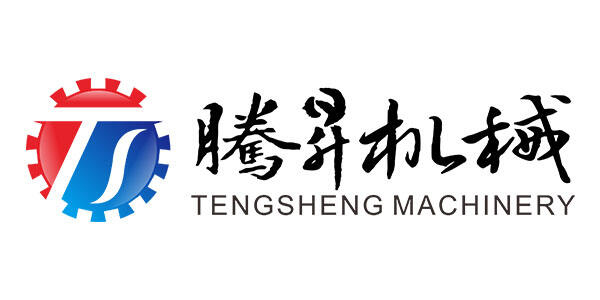Good inventory control matters a lot in today's meat processing plants if we want to cut down on waste and keep things running smoothly. Demand for products goes up and down all the time, so there's constant danger of either having too much stock sitting around or running short when needed most. Both situations hurt profits and disrupt daily operations. Meat processors need accurate tracking systems that work in real time to maintain proper stock levels without causing bottlenecks. Many facilities are turning to tech solutions like ERP systems to get better control over their inventory throughout the whole supply chain. These systems help match production schedules with what's actually available in storage, making sure orders come in on time while keeping extra spending to a minimum. Some smaller operations find the initial setup costs challenging though, which makes careful planning essential before investing in new software.
Keeping quality at the top level remains essential in meat processing operations since it directly affects what customers think about the products and how they view the company's reputation. Meeting all those regulations around food safety creates extra work that demands regular checks and attention throughout production. New tech developments in tracking where ingredients come from and controlling quality across batches help companies stay within tight regulatory boundaries. Meat processors now digitize their quality checks and use ERP systems to monitor things in real time, which keeps them compliant and cuts down on problems like product recalls or getting hit with lawsuits. With quality management and following rules becoming tougher day by day, many plants find themselves needing better technology solutions just to keep up with basic requirements while still delivering safe, consistent products to market.
Cutting and slicing meat often gets backed up at certain points in processing plants, which slows things down and limits how much product can be made overall. Many processors find that looking closely at their workflow helps them spot exactly where time is being wasted so they can fix those problem areas. New tech like automatic slicing machines has proven helpful in speeding things up while making cuts more consistent across batches. When companies install these kinds of upgrades, they typically see faster processing times along with better product uniformity and lower staffing expenses. Getting these innovations working smoothly within existing production lines usually leads to higher output volumes without sacrificing the standards customers expect from their meat products.
New shredder tech is changing how we handle portion control in meat processing, offering much better accuracy than older methods. This means less food gets wasted and the final product stays consistently good quality across batches. Meat processors who switch to these special meat shredders typically see their production speed go way up, which helps meat plants keep up with demand. Some industry reports indicate that facilities adopting this kind of equipment often experience around a 30% increase in overall productivity. Putting these modern shredders into existing processing lines makes operations run smoother while also helping cut down on waste, which aligns well with current sustainability goals many companies are pursuing these days.
Getting consistent meat texture and flavor through automated tenderization really matters for happy customers and meeting what the industry expects. When we bring machine learning into play during tenderization, it lets us fine tune the process for all sorts of different meats so each one comes out just right for its type. The automation aspect cuts down on needing so many workers, which saves money over time. Plus, there's less chance of mistakes happening since humans aren't handling everything manually anymore. Looking at numbers from across the industry shows these tech upgrades actually work. Meat processors report saving thousands while keeping their products tasting great batch after batch. For companies worried about their bottom line and how consumers perceive their brand, this kind of investment makes good business sense.
Getting slices just right matters a lot when it comes to satisfying customers who want their meat products, whether cooked or raw. People expect certain looks and textures from what they buy at stores or restaurants. High precision cutting machines help cut down on waste because they follow those exact measurements needed for different cuts. Meat processors know this well enough to spend money on better slicing tech these days. These machines make work faster in processing plants while keeping the meat looking good on display shelves. A steak that's sliced evenly across its surface just looks nicer than one that's been hacked through haphazardly, which means shoppers are more likely to pick it up off the counter and take it home.
By focusing on these advanced processing solutions, meat processing plants can significantly enhance their operational efficiency and product quality, thereby staying competitive in a rapidly evolving market.
The TS-JR42B vertical meat grinder really shines when it comes to getting the job done fast while keeping things safe in the processing line. Most plants report around 98% meat recovery with this model, which means significantly less waste going into the trash bin at day's end. What sets this machine apart is how well it handles everything from tender cuts to tougher meats without missing a beat. Butchers and plant managers appreciate that versatility because they don't need multiple grinders sitting around collecting dust just to process different kinds of meat throughout the week.
The TS-Y30 machine stands out as one of the most important tools for meat tenderization work, delivering good results on pretty much every cut we've tested. What makes this machine really stand apart is how it cuts down on hands-on work time by around 35-40%, which saves both money and effort in the long run. We've heard from dozens of butchers and processors who swear by the TS-Y30 after trying it out themselves. They mention consistently better texture in their meats and fewer complaints from customers about chewiness. For anyone running a serious meat operation these days, getting familiar with what the TS-Y30 can do should definitely be part of their equipment shopping list.
Designed for heavy duty use, the TS-Q115C cooked meat slicer really shines when it comes to precise cuts that help meet all sorts of market requirements. Meat processors who have used this machine say their production lines run faster and they maintain better hygiene standards overall. What stands out most about this equipment is how easy it is to adjust the cutting thickness settings. For butcher shops and food processing plants dealing with different customer orders every day, this flexibility means they can switch between thick steaks and thin deli slices without missing a beat through the day's workload.
ERP systems play a key role in keeping production lines running smoothly while giving managers better access to what's happening right now on the floor. These platforms bring together different parts of the business like stock control, planning when things get made, and checking product quality standards all in one place. The tracking capabilities built into most ERP software let operators spot problems before they become big issues, which helps keep everything moving efficiently through the plant. Industry reports suggest that businesses that install proper ERP setups often see around 20% improvement in how well their operations run day to day. For meat processors trying to stay ahead of competitors, this kind of visibility across all departments makes a huge difference in maintaining profitability without sacrificing food safety standards.
When manufacturers start using IoT technology in their cutting equipment, they get something really valuable - the ability to monitor everything in real time and spot problems before they happen. This means machines break down way less often than before. The system constantly gathers all sorts of data and looks for patterns that might signal trouble ahead. Many factories have seen their maintenance costs drop while their machines run longer between repairs after implementing these smart systems. Take one steel plant for instance, which cut its unplanned downtime by 40% within six months. What makes IoT so powerful is how flexible it is. As new technologies emerge, these connected systems can be upgraded rather than replaced entirely, making them a good long term investment for any factory looking to stay competitive in today's fast changing manufacturing landscape.
Keeping track of where different meats come from matters a lot in facilities that handle multiple species, mainly because it helps keep food safe and meets all those regulations. Meat processing plants are starting to adopt blockchain tech to get better visibility across their supply chains, so they know exactly where each cut comes from right down to the farm gate. Studies show when companies have good tracking systems, they avoid expensive product recalls and build stronger relationships with customers who care about what's in their meals. The detailed logs these systems create make it much easier to find out where problems might have started during contamination incidents, which cuts down on risk factors and gives shoppers peace of mind knowing their beef, pork or chicken hasn't been compromised somewhere along the way.
The food shredding world is getting a major upgrade thanks to artificial intelligence. These smart shredders can now handle everything from tender chicken breast to tough cuts of beef because they learn from previous operations. When faced with different meats, AI systems tweak how fast they shred and what cutting methods work best for each texture and size. Meat processors have seen real improvements already - some plants report wasting 30% less product since switching to AI equipped machines. As more companies jump on this bandwagon, we're likely to see processing speeds pick up across the board. For meat packers looking to stay ahead, investing in these intelligent shredding solutions isn't just about keeping up with trends anymore; it's becoming essential for staying profitable in an increasingly automated industry.
Sustainability has become pretty crucial for companies involved in poultry and beef processing lately. Regulations are getting tighter while consumers want greener options on their plates. Many processors are now installing things like energy saving machinery and finding clever ways to cut down waste, stuff that builds customer confidence and actually boosts profits too. Some studies show firms going green tend to keep customers coming back and generally have stronger brands in the market. Looking ahead, automated meat processing needs to find a way to work well without harming the planet. More and more plants are figuring out how to run efficiently while still being kinder to the environment, which makes sense for everyone involved long term.
Modular plant design is catching on fast among meat processors who need both flexibility and room to grow. With this setup, companies can boost production step by step rather than investing big bucks all at once in brand new buildings or machinery. The numbers back it up too many firms find they cut down on risks when expanding this way, plus they stay nimble enough to tweak output based on what customers want right now. As demand keeps climbing across the meat sector, being able to ramp up operations quickly without breaking the bank becomes essential for staying competitive long term.


Copyright © 2024 Zhaoqing Tengsheng Machinery Co., Ltd all rights reserved - Privacy policy